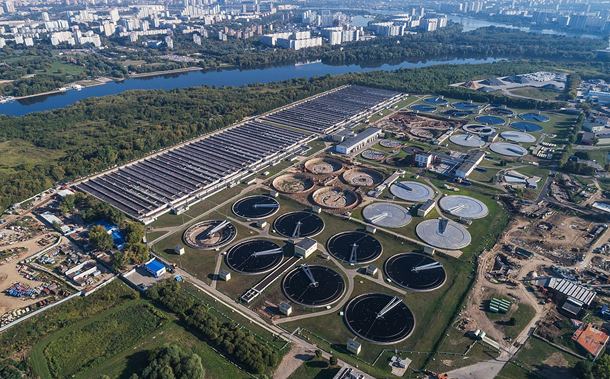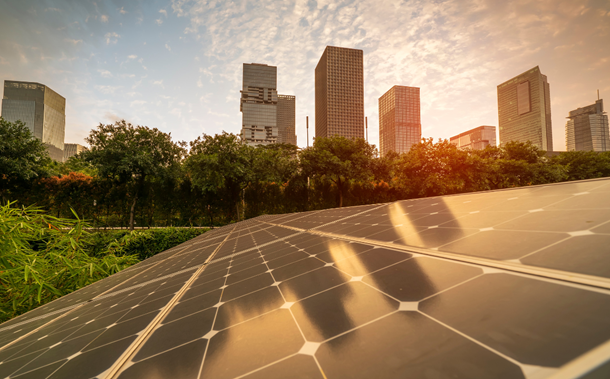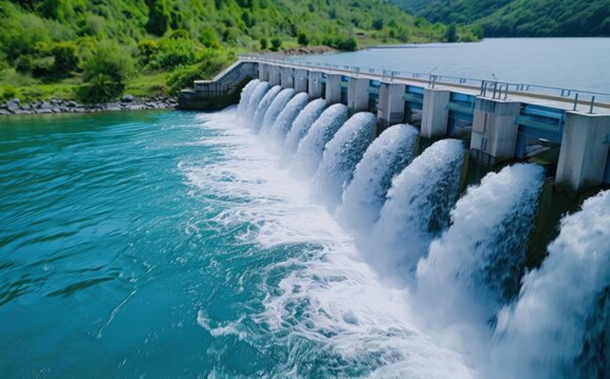SWOT Analysis of the Benefits of Hydropower Energy in Four Archipelagos
Downloads
Doi:10.28991/CEJ-2024-010-07-019
Full Text:PDF
Downloads
[2] Santamarta, J. C., Cruz-Pérez, N., Rodríguez-Martín, J., Beltrán, R. F., de Gracia, M. D. S., & García-Gil, A. (2022). Ecological transition in a World Heritage City: The case of San Cristóbal de La Laguna (Canary Islands). Environmental Progress & Sustainable Energy, 41(6), e13957. doi:10.1002/ep.13957.
[3] P8_TA(2016)0049. (2016). Special situation of islands European Parliament resolution of 4 February 2016 on the special situation of islands (2015/3014(RSP)). Official Journal of the European Union, C 35/71.
[4] Barone, G., Buonomano, A., Forzano, C., Giuzio, G. F., & Palombo, A. (2021). Increasing renewable energy penetration and energy independence of island communities: A novel dynamic simulation approach for energy, economic, and environmental analysis, and optimization. Journal of Cleaner Production, 311, 127558. doi:10.1016/j.jclepro.2021.127558.
[5] Gabderakhmanova, T., & Marinelli, M. (2022). Multi-Energy System Demonstration Pilots on Geographical Islands: An Overview across Europe. Energies, 15(11), 3908. doi:10.3390/en15113908.
[6] Stenzel, P., Schreiber, A., Marx, J., Wulf, C., Schreieder, M., & Stephan, L. (2017). Renewable energies for Graciosa Island, Azores-Life Cycle Assessment of electricity generation. Energy Procedia, 135, 62–74. doi:10.1016/j.egypro.2017.09.487.
[7] Ioannidis, A., Chalvatzis, K. J., Li, X., Notton, G., & Stephanides, P. (2019). The case for islands' energy vulnerability: Electricity supply diversity in 44 global islands. Renewable Energy, 143, 440–452. doi:10.1016/j.renene.2019.04.155.
[8] Caldera, U., Gulagi, A., Jayasinghe, N., & Breyer, C. (2023). Looking island wide to overcome Sri Lankaʼs energy crisis while gaining independence from fossil fuel imports. Renewable Energy, 218, 119261. doi:10.1016/j.renene.2023.119261.
[9] IRENA. (2024). Small Island Developing States at a Crossroads: Towards equitable energy access in least-electrified countries. International Renewable Energy Agency (IRENA), Masdar City, United Arab Emirates.
[10] Blechinger, P., Cader, C., Bertheau, P., Huyskens, H., Seguin, R., & Breyer, C. (2016). Global analysis of the techno-economic potential of renewable energy hybrid systems on small islands. Energy Policy, 98, 674–687. doi:10.1016/j.enpol.2016.03.043.
[11] Chen, F., Duic, N., Manuel Alves, L., & da Graça Carvalho, M. (2007). Renewislands-Renewable energy solutions for islands. Renewable and Sustainable Energy Reviews, 11(8), 1888–1902. doi:10.1016/j.rser.2005.12.009.
[12] Novykh, O., Pérez, J. A. M., González-Díaz, B., & Sviridenko, I. (2019). Performance analysis of hybrid hydroelectric gorona del viento and the basic directions of its perfection. Renewable Energy and Power Quality Journal, 17, 489–494. doi:10.24084/repqj17.353.
[13] Katsaprakakis, D. Al, Proka, A., Zafirakis, D., Damasiotis, M., Kotsampopoulos, P., Hatziargyriou, N., Dakanali, E., Arnaoutakis, G., & Xevgenos, D. (2022). Greek Islands' Energy Transition: From Lighthouse Projects to the Emergence of Energy Communities. Energies, 15(16), 5996. doi:10.3390/en15165996.
[14] Nikolaos, P. C., Marios, F., & Dimitris, K. (2023). A Review of Pumped Hydro Storage Systems. Energies, 16(11), 4516. doi:10.3390/en16114516.
[15] Meirelles, M., Carvalho, F., Porteiro, J., Henriques, D., Navarro, P., & Vasconcelos, H. (2022). Climate Change and Impact on Renewable Energies in the Azores Strategic Visions for Sustainability. Sustainability (Switzerland), 14(22), 15174. doi:10.3390/su142215174.
[16] Shehhi, A. Al, Hazza, M. Al, Alnahhal, M., Sakhrieh, A., & Zarooni, M. Al. (2021). Challenges and barriers for renewable energy implementation in the United Arab Emirates: Empirical study. International Journal of Energy Economics and Policy, 11(1), 158–164. doi:10.32479/ijeep.10585.
[17] Notton, G. (2015). Importance of islands in renewable energy production and storage: The situation of the French islands. Renewable and Sustainable Energy Reviews, 47, 260–269. doi:10.1016/j.rser.2015.03.053.
[18] UNIDO. (2022). World Small Hydropower Development Report 2022. United Nations Industrial Development Organization (UNIDO), Vienna, Austria.
[19] Meng, Y., Liu, J., Leduc, S., Mesfun, S., Kraxner, F., Mao, G., Qi, W., & Wang, Z. (2020). Hydropower Production Benefits More From 1.5°C than 2°C Climate Scenario. Water Resources Research, 56(5), 25519. doi:10.1029/2019WR025519.
[20] Nordman, E., Barrenger, A., Crawford, J., McLaughlin, J., & Wilcox, C. (2019). Options for achieving cape verde's 100% renewable electricity goal: A review. Island Studies Journal, 14(1), 41–58. doi:10.24043/isj.73.
[21] Pina, A., Ioakimidis, C. S., & Ferrí£o, P. (2008). Economic modeling of a seawater pumped-storage system in the context of Sí£o Miguel. 2008 IEEE International Conference on Sustainable Energy Technologies. doi:10.1109/ICSET.2008.4747098.
[22] Ioakimidis, C. S., & Genikomsakis, K. N. (2018). Integration of seawater pumped-storage in the energy system of the Island of Sí£o Miguel (Azores). Sustainability (Switzerland), 10(10), 3438. doi:10.3390/su10103438.
[23] Bueno, C., & Carta, J. A. (2006). Wind powered pumped hydro storage systems, a means of increasing the penetration of renewable energy in the Canary Islands. Renewable and Sustainable Energy Reviews, 10(4), 312–340. doi:10.1016/j.rser.2004.09.005.
[24] Williams, A. A., & Simpson, R. (2009). Pico hydro - Reducing technical risks for rural electrification. Renewable Energy, 34(8), 1986–1991. doi:10.1016/j.renene.2008.12.011.
[25] Sousa, L. R. e, Gouzhao, L., Cafofo, P., Sousa, R. L., Gomes, A. T., Dias, D., & Vargas, E. (2022). Underground pumped hydroelectric schemes: the Madeira Island case. Arabian Journal of Geosciences, 15(1), 108. doi:10.1007/s12517-021-09333-z.
[26] Barreira, I., Gueifí£o, C., & Ferreira De Jesus, J. (2017). Off-stream Pumped Storage Hydropower plant to increase renewable energy penetration in Santiago Island, Cape Verde. Journal of Physics: Conference Series, 813(1), 12011. doi:10.1088/1742-6596/813/1/012011.
[27] Carvalho, F., Meirelles, M., Henriques, D., & Navarro, P. (2020). Climate Change and the Increase in Extreme Events in the Azores. Boletim Do Núcleo Cultural Da Horta, 29, 95–108. (In Portuguese).
[28] Rémillard, J., & Tselioudis, G. (2015). Cloud regime variability over the Azores and its application to climate model evaluation. Journal of Climate, 28(24), 9707–9720. doi:10.1175/JCLI-D-15-0066.1.
[29] Barbaro, M., & Castro, R. (2020). Design optimisation for a hybrid renewable microgrid: Application to the case of Faial island, Azores archipelago. Renewable Energy, 151, 434–445. doi:10.1016/j.renene.2019.11.034.
[30] REAA. (2020). Relatório do Estado do Ambiente dos Açores 2017-2019.
[31] Comino, E., Dominici, L., Ambrogio, F., & Rosso, M. (2020). Mini-hydro power plant for the improvement of urban water-energy nexus toward sustainability - A case study. Journal of Cleaner Production, 249, 119416. doi:10.1016/j.jclepro.2019.119416.
[32] Roque, C., Hernández-Molina, F. J., Madureira, P., Quartau, R., Magalhí£es, V., Brito, P., Vázquez, J. T., & Somoza, L. (2022). Interplay of deep-marine sedimentary processes with seafloor morphology offshore Madeira Island (Central NE-Atlantic). Marine Geology, 443, 106675. doi:10.1016/j.margeo.2021.106675.
[33] Espinosa, L. A., & Portela, M. M. (2020). Rainfall Trends over a Small Island Teleconnected to the North Atlantic Oscillation - the Case of Madeira Island, Portugal. Water Resources Management, 34(14), 4449–4467. doi:10.1007/s11269-020-02668-4.
[34] da Luz, L. M., Antunes, A. P., Caldeirinha, V., Caballé-Valls, J., & Garcia-Alonso, L. (2022). Cruise destination characteristics and performance: Application of a conceptual model to North Atlantic islands of Macaronesia. Research in Transportation Business & Management, 43, 100747. doi:10.1016/j.rtbm.2021.100747.
[35] Miguel, M., Nogueira, T., & Martins, F. (2017). Energy storage for renewable energy integration: The case of Madeira Island, Portugal. Energy Procedia, 136, 251–257. doi:10.1016/j.egypro.2017.10.277.
[36] Rodríguez-Martín, J., Cruz-Pérez, N., & Santamarta, J. C. (2022). Maritime Climate in the Canary Islands and its Implications for the Construction of Coastal Infrastructures. Civil Engineering Journal (Iran), 8(1), 24–32. doi:10.28991/CEJ-2022-08-01-02.
[37] Bechtel, B. (2016). The Climate Of The Canary Islands By Annual Cycle Parameters. ISPRS - International Archives of the Photogrammetry, Remote Sensing and Spatial Information Sciences, XLI-B8, 243–250. doi:10.5194/isprsarchives-xli-b8-243-2016.
[38] Santamarta, J. C., Rubiales, I. C., Rodríguez-Martín, J., & Cruz-Pérez, N. (2022). Water status in the Canary Islands related to energy requirements. Energy Efficiency, 15(2), 12. doi:10.1007/s12053-021-10016-7.
[39] Mendieta Pino, C. A., Lozano Medina, J. C., Ramos Martín, A., Déniz Quintana, F., & Henríquez Concepción, V. (2023). GHG Mitigation in the Electricity Production System in Canary Islands. a Proposal for a Management and Optimization Tool in Generation. 36th International Conference on Efficiency, Cost, Optimization, Simulation and Environmental Impact of Energy Systems (ECOS 2023). doi:10.52202/069564-0184.
[40] Torres-Herrera, H. J., & Lozano-Medina, A. (2021). Methodological Proposal for the Assessment Potential of Pumped Hydropower Energy Storage: Case of Gran Canaria Island. Energies, 14(12), 3553. doi:10.3390/en14123553.
[41] Ferreira, P., Lopes, A., Dranka, G. G., & Cunha, J. (2020). Planning for a 100% renewable energy system for the Santiago Island, Cape Verde. International Journal of Sustainable Energy Planning and Management, 29, 25–40. doi:10.5278/ijsepm.3603.
[42] Baptista, S., & Tarelho, L. (2020). Analysis of evolution scenarios of Santiago Island energy sector in Cabo Verde. Energy Reports, 6, 574–580. doi:10.1016/j.egyr.2019.09.028.
[43] Segurado, R., KrajaÄić, G., Duić, N., & Alves, L. (2011). Increasing the penetration of renewable energy resources in S. Vicente, Cape Verde. Applied Energy, 88(2), 466–472. doi:10.1016/j.apenergy.2010.07.005.
[44] EDA. (2020). Chira-soria Hydroelectric Pumping Station Project - Main Equipment Corresponding to the Generation Train. Tender documents: T455484673, G455484673. European Defence Agency (EDA), Brussels, Belgium.
[45] EDA. (2023). Renewable electricity in review. Portugal needs our energy. Eletricidade dos Açores (EDA), Ponta Delgada, Portugal. (In Portuguese).
[46] EAE. (2022). Acoriana Strategy for Energy 2030. Direçí£o Regional da Energia, Ponta Delgada, Portugal. (In Portuguese).
[47] Martins, A. A., Simaria, M., Barbosa, J., Barbosa, R., Silva, D. T., Rocha, C. S., Mata, T. M., & Caetano, N. S. (2018). Life cycle assessment tool of electricity generation in Portugal. Environment, Development and Sustainability, 20, 129–143. doi:10.1007/s10668-018-0179-y.
[48] Ramos-Real, F. J., Barrera-Santana, J., Ramírez-Díaz, A., & Perez, Y. (2018). Interconnecting isolated electrical systems. The case of Canary Islands. Energy Strategy Reviews, 22, 37–46. doi:10.1016/j.esr.2018.08.004.
[49] Stenzel, P., Schreiber, A., Marx, J., Wulf, C., Schreieder, M., & Stephan, L. (2018). Environmental impacts of electricity generation for Graciosa Island, Azores. Journal of Energy Storage, 15, 292–303. doi:10.1016/j.est.2017.12.002.
[50] Ansorena Ruiz, R., de Vilder, L. H., Prasasti, E. B., Aouad, M., De Luca, A., Geisseler, B., Terheiden, K., Scanu, S., Miccoli, A., Roeber, V., Marence, M., Moll, R., Bricker, J. D., & Goseberg, N. (2022). Low-head pumped hydro storage: A review on civil structure designs, legal and environmental aspects to make its realization feasible in seawater. Renewable and Sustainable Energy Reviews, 160, 112281. doi:10.1016/j.rser.2022.112281.
[51] Kougias, I., Aggidis, G., Avellan, F., Deniz, S., Lundin, U., Moro, A., Muntean, S., Novara, D., Pérez-Díaz, J. I., Quaranta, E., Schild, P., & Theodossiou, N. (2019). Analysis of emerging technologies in the hydropower sector. Renewable and Sustainable Energy Reviews, 113, 109257. doi:10.1016/j.rser.2019.109257.
[52] Lees, A. C., Peres, C. A., Fearnside, P. M., Schneider, M., & Zuanon, J. A. S. (2016). Hydropower and the future of Amazonian biodiversity. Biodiversity and Conservation, 25(3), 451–466. doi:10.1007/s10531-016-1072-3.
[53] Hamidifar, H., Akbari, F., & Rowiński, P. M. (2022). Assessment of Environmental Water Requirement Allocation in Anthropogenic Rivers with a Hydropower Dam Using Hydrologically Based Methods”Case Study. Water (Switzerland), 14(6), 893. doi:10.3390/w14060893.
[54] O'Hanley, J. R., Pompeu, P. S., Louzada, M., Zambaldi, L. P., & Kemp, P. S. (2020). Optimizing hydropower dam location and removal in the Sí£o Francisco river basin, Brazil to balance hydropower and river biodiversity tradeoffs. Landscape and Urban Planning, 195, 103725. doi:10.1016/j.landurbplan.2019.103725.
[55] Borges, P., Ng, K., & Calado, H. (2011). Coastal Hazards in the Azores Archipelago ” Coastal Storms and Flooding. Journal of Coastal Research, 61, 474–474. doi:10.2112/si61-001.63.
[56] Cabral, B. (2023). Local communities at the heart of tourism development: the Azores tourism strategy 2030. Worldwide Hospitality and Tourism Themes, 15(6), 656–663. doi:10.1108/WHATT-09-2023-0113.
[57] Calado, H., Borges, P., Phillips, M., Ng, K., & Alves, F. (2011). The Azores archipelago, Portugal: Improved understanding of small island coastal hazards and mitigation measures. Natural Hazards, 58(1), 427–444. doi:10.1007/s11069-010-9676-5.
[58] Segurado, R., Madeira, J. F. A., Costa, M., Duić, N., & Carvalho, M. G. (2016). Optimization of a wind powered desalination and pumped hydro storage system. Applied Energy, 177, 487–499. doi:10.1016/j.apenergy.2016.05.125.
[59] Santamarta, J. C., Lario-Bascones, R. J., Rodríguez-Martín, J., Hernández-Gutiérrez, L. E., & Poncela, R. (2014). Introduction to Hydrology of Volcanic Islands. IERI Procedia, 9, 135–140. doi:10.1016/j.ieri.2014.09.053.
[60] Ramos, H. M., & Coronado-Hernández, í“. E. (2023). IoT, machine learning and photogrammetry in small hydropower towards energy and digital transition: potential energy and viability analyses. Journal of Applied Research in Technology & Engineering, 4(2), 69–86. doi:10.4995/jarte.2023.19510.
[61] Beires, P., Vasconcelos, M. H., Moreira, C. L., & Peças Lopes, J. A. (2018). Stability of autonomous power systems with reversible hydro power plants: A study case for large scale renewables integration. Electric Power Systems Research, 158, 1–14. doi:10.1016/j.epsr.2017.12.028.
[62] Orr, M. (2014). New Observations on a Geological Hotspot Track: Excursions in Madeira and Porto Santo (1825) by Mrs T. Edward Bowdich. Centaurus, 56(3), 135–166. doi:10.1111/1600-0498.12060.
[63] Vasconcelos, H., Moreira, C., Madureira, A., Lopes, J. P., & Miranda, V. (2015). Advanced Control Solutions for Operating Isolated Power Systems: Examining the Portuguese islands. IEEE Electrification Magazine, 3(1), 25–35. doi:10.1109/MELE.2014.2380131.
[64] Marczinkowski, H. M., & Barros, L. (2020). Technical approaches and institutional alignment to 100% renewable energy system transition of madeira island-electrification, smart energy and the required flexible market conditions. Energies, 13(17), 4434. doi:10.3390/en13174434.
[65] Lange, K., Meier, P., Trautwein, C., Schmid, M., Robinson, C. T., Weber, C., & Brodersen, J. (2018). Basin-scale effects of small hydropower on biodiversity dynamics. Frontiers in Ecology and the Environment, 16(7), 397–404. doi:10.1002/fee.1823.
[66] Tirkaso, W. T., & Gren, I. M. (2022). Evaluation of cost efficiency in hydropower-related biodiversity restoration projects in Sweden–a stochastic frontier approach. Journal of Environmental Planning and Management, 66(2), 221–240. doi:10.1080/09640568.2021.1987865.
[67] Frydrychowicz-Jastrzębska, G. (2018). El Hierro Renewable Energy Hybrid System: A Tough Compromise. Energies, 11(10), 2812. doi:10.3390/en11102812.
[68] Melián-Martel, N., del Río-Gamero, B., & Schallenberg-Rodríguez, J. (2021). Water cycle driven only by wind energy surplus: Towards 100% renewable energy islands. Desalination, 515. doi:10.1016/j.desal.2021.115216.
[69] Gobierno de Canarias. (2021). Anuario Energético de Canarias 2021. Consejería de Transición Ecológica, Lucha contra el Cambio Climático y Planificación Territorial, Lanzarote, Spain. (In Portuguese).
[70] European Commission (EU). (2022). Clean energy for EU islands: Virtual Transmission Line for N-1 Security Compliance with Storage La Palma, Spain. European Commission, Brussels, Belgium.
[71] MENA Report. (2020). Chira-soria Hydroelectric Pumping Station Project - Main Equipment Corresponding to The Generation Train. Tender documents: T455484673, G455484673. MENA Report, Camden, United Kingdom. Available online: https://www.proquest.com/wire-feeds/chira-soria-hydroelectric-pumping-station-project/docview/2440135584/se-2 (accessed on June 2024).
[72] Padrón, I., Avila, D., Marichal, G. N., & Rodríguez, J. A. (2019). Assessment of Hybrid Renewable Energy Systems to supplied energy to Autonomous Desalination Systems in two islands of the Canary Archipelago. Renewable and Sustainable Energy Reviews, 101, 221–230. doi:10.1016/j.rser.2018.11.009.
[73] Llera, E., Scarpellini, S., Aranda, A., & Zabalza, I. (2013). Forecasting job creation from renewable energy deployment through a value-chain approach. Renewable and Sustainable Energy Reviews, 21, 262–271. doi:10.1016/j.rser.2012.12.053.
[74] Erdinc, O., Paterakis, N. G., & Catalaíµ, J. P. S. (2015). Overview of insular power systems under increasing penetration of renewable energy sources: Opportunities and challenges. Renewable and Sustainable Energy Reviews, 52, 333–346. doi:10.1016/j.rser.2015.07.104.
[75] Wu, Z., Liu, D., Mei, Y., Guo, S., Xiong, L., Liu, P., Chen, J., Yin, J., & Zeng, Y. (2023). A Nonlinear Model for Evaluating Dynamic Resilience of Water Supply Hydropower Generation-Environment Conservation Nexus System. Water Resources Research, 59(11), 2023WR034922. doi:10.1029/2023WR034922.
[76] Pombo, D. V., Martinez-Rico, J., & Marczinkowski, H. M. (2022). Towards 100% renewable islands in 2040 via generation expansion planning: The case of Sí£o Vicente, Cape Verde. Applied Energy, 315, 118869. doi:10.1016/j.apenergy.2022.118869.
[77] Garcia, J., & Semedo, A. (2024). Sustainable CO2 Refrigeration System for Fish Cold Storage Facility Using a Renewable Integrated System with Solar, Wind and Tidal Energy for Cape Verde”Analyzing Scenarios. Sustainability (Switzerland) , 16(10), 4259. doi:10.3390/su16104259.
[78] Cruz, M. A. R. S., Yahyaoui, I., Fiorotti, R., Segatto, M. E. V., Atieh, A., & Rocha, H. R. O. (2023). Sizing and energy optimization of wind/floating photovoltaic/hydro-storage system for Net Zero Carbon emissions in Brava Island. Renewable Energy Focus , 47, 100486. doi:10.1016/j.ref.2023.08.003.
[79] Tavares, T., Tavares, J., León-Zerpa, F. A., Peñate-Suárez, B., & Ramos-Martín, A. (2022). Assessment of processes to increase the lifetime and potential reuse and recycling of reverse osmosis membranes towards a circular economy. Case of study of Cape Verde and Macaronesia area. Desalination and Water Treatment, 259, 308–314. doi:10.5004/dwt.2022.28577.
[80] Targeted News Service (2023). European commission: Team europe and cabo verde present an investment package of Euros246 million to boost green energy, sustainable transport and digital connectivity transformation. Targeted News Service, Washington, United States. Available online: https://www.proquest.com/wire-feeds/european-commission-team-europe-cabo-verde/docview/2881464466/se-2 (accessed on June 2024).
[81] Djellouli, N., Abdelli, L., Elheddad, M., Ahmed, R., & Mahmood, H. (2022). The effects of non-renewable energy, renewable energy, economic growth, and foreign direct investment on the sustainability of African countries. Renewable Energy, 183, 676–686. doi:10.1016/j.renene.2021.10.066.
[82] Ibrahiem, D. M., & Hanafy, S. A. (2021). Do energy security and environmental quality contribute to renewable energy? The role of trade openness and energy use in North African countries. Renewable Energy, 179, 667–678. doi:10.1016/j.renene.2021.07.019.
[83] Grydehí¸j, A., & Kelman, I. (2017). The eco-island trap: climate change mitigation and conspicuous sustainability. Area, 49(1), 106–113. doi:10.1111/area.12300.
[84] Kolhe, M. L., Ranaweera, K. I. U., & Gunawardana, A. S. (2015). Techno-economic sizing of off-grid hybrid renewable energy system for rural electrification in Sri Lanka. Sustainable Energy Technologies and Assessments, 11, 53-64. doi:10.1016/j.seta.2015.03.008.
[85] Papakonstantinou, A. G., Konstanteas, A. I., & Papathanassiou, S. A. (2023). Solutions to Enhance Frequency Regulation in an Island System with Pumped-Hydro Storage under 100% Renewable Energy Penetration. IEEE Access, 11(June), 76675–76690. doi:10.1109/ACCESS.2023.3296890.
[86] Fernández-Palacios, Y., Kaushik, S., Abramic, A., Cordero-Penín, V., García-Mendoza, A., Bilbao-Sieyro, A., Pérez-González, Y., Sepúlveda, P., Lopes, I., Andrade, C., Nogueira, N., Carreira, G. P., Magalhí£es, M., & Haroun, R. (2023). Status and perspectives of blue economy sectors across the Macaronesian archipelagos. Journal of Coastal Conservation, 27(5), 39. doi:10.1007/s11852-023-00961-z.
[87] Tănasie, A. V., Năstase, L. L., VochiÈ›a, L. L., Manda, A. M., BoÈ›oteanu, G. I., & Sitnikov, C. S. (2022). Green Economy”Green Jobs in the Context of Sustainable Development. Sustainability (Switzerland), 14(8), 4796. doi:10.3390/su14084796.
[88] Wu, Y., Zhang, T., Chen, K., & Yi, L. (2020). A risk assessment framework of seawater pumped hydro storage project in China under three typical public-private partnership management modes. Journal of Energy Storage, 32. doi:10.1016/j.est.2020.101753.
[89] McLean, E., & Kearney, D. (2014). An evaluation of seawater pumped hydro storage for regulating the export of renewable energy to the national grid. Energy Procedia, 46, 152–160. doi:10.1016/j.egypro.2014.01.168.
[90] Hu, J., Wang, Q., Meng, Z., Song, H., Chen, B., & Shen, H. (2023). Numerical Study of the Internal Fluid Dynamics of Draft Tube in Seawater Pumped Storage Hydropower Plant. Sustainability (Switzerland), 15(10), 8327. doi:10.3390/su15108327.
[91] Pradhan, A., Marence, M., & Franca, M. J. (2021). The adoption of Seawater Pump Storage Hydropower Systems increases the share of renewable energy production in Small Island Developing States. Renewable Energy, 177, 448–460. doi:10.1016/j.renene.2021.05.151.
[92] Kuang, Y., Zhang, Y., Zhou, B., Li, C., Cao, Y., Li, L., & Zeng, L. (2016). A review of renewable energy utilization in islands. Renewable and Sustainable Energy Reviews, 59, 504–513. doi:10.1016/j.rser.2016.01.014.
[93] Hosein, R., Boodram, L., & Saridakis, G. (2022). Stimulating Non-Energy Exports in Trinidad and Tobago: Evidence from a Small Petroleum-Exporting Economy Experiencing the Dutch Disease. Journal of Risk and Financial Management, 15(1), 36. doi:10.3390/jrfm15010036.
[94] Mikhaylov, A. (2020). Geothermal energy development in Iceland. International Journal of Energy Economics and Policy, 10(4), 31–35. doi:10.32479/ijeep.9047.
[95] Spengler, S., Heskett, M., Uyeno, D., & Struach, A. (2017). Balancing in-and off-stream uses of water in the Hawaiian Islands. WIT Transactions on Ecology and the Environment, 216, 15–26. doi:10.2495/WS170021.
[96] KrajaÄić, G., LonÄar, D., Duić, N., Zeljko, M., Lacal Arántegui, R., Loisel, R., & Raguzin, I. (2013). Analysis of financial mechanisms in support to new pumped hydropower storage projects in Croatia. Applied Energy, 101, 161–171. doi:10.1016/j.apenergy.2012.07.007.
- Authors retain all copyrights. It is noticeable that authors will not be forced to sign any copyright transfer agreements.
- This work (including HTML and PDF Files) is licensed under a Creative Commons Attribution 4.0 International License.![]()















